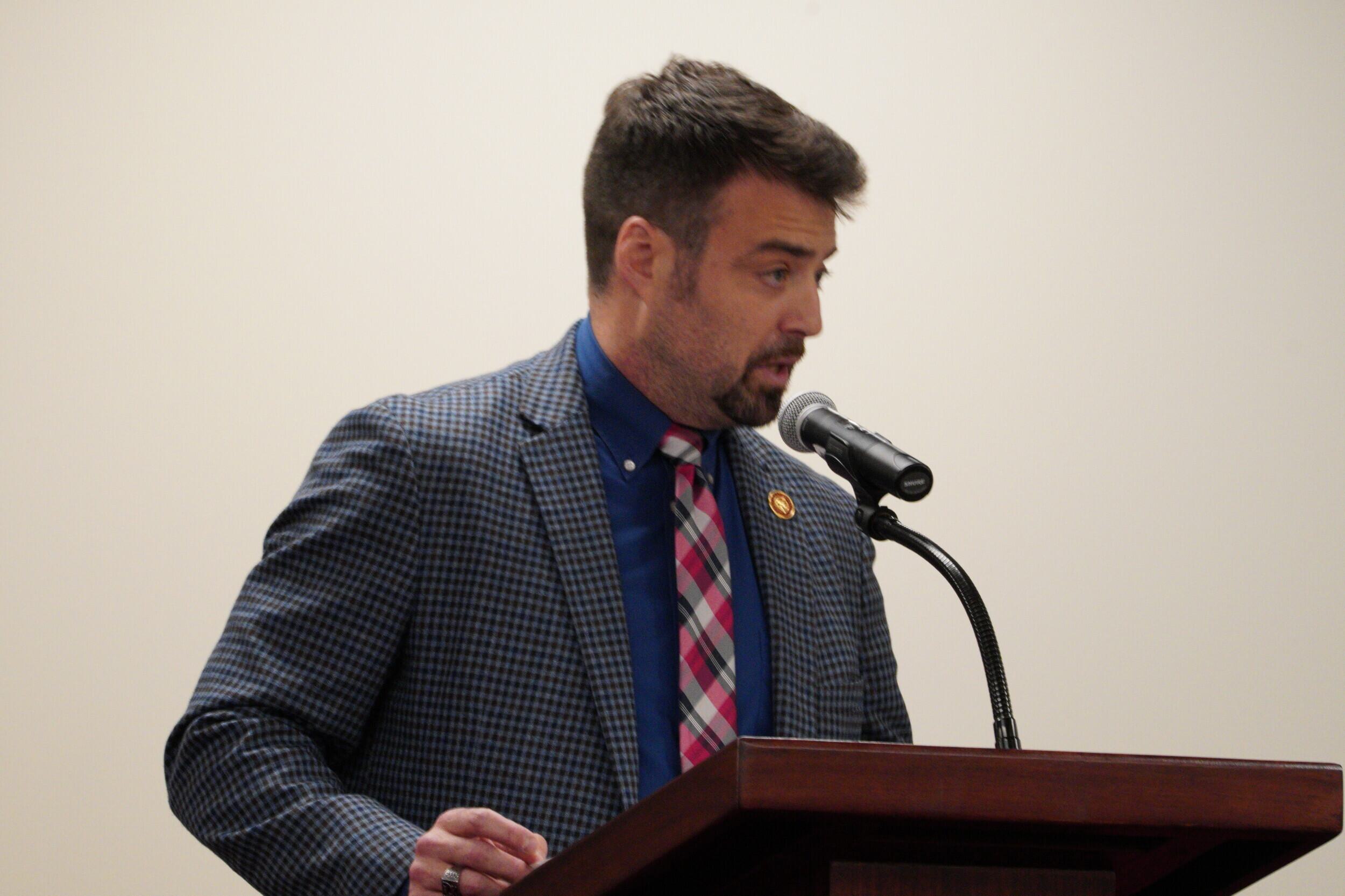MONTGOMERY — The House Public Safety and Homeland Security Committee voted Wednesday to delay voting on legislation that would bolster local law enforcement’s ability to work with federal agencies to enforce immigration laws.
House Bill 376 (HB376), also called the Laken Riley Act, would bolster the ability of Alabama law enforcement agencies to further enforce immigration law.
The bill's name comes from the February abduction and murder of Laken Riley, who was an undergraduate student at the Augusta University nursing school and a former student at the University of Georgia. The suspect in the case is a 26-year-old illegal immigrant, Jose Antonio Ibarra, from Venezuela, who police say abducted her while she was jogging on the UGA campus.
On Wednesday, State Rep. Ernie Yarbrough (R-Trinity), the bill’s sponsor, presented and accepted several amendments to the bill, addressing concerns from law enforcement and municipalities. However, the committee did not vote on the bill, rather placing it in a subcommittee to further discuss the details.
One amendment removed certain reporting requirements to the Alabama Law Enforcement Agency while still allowing quarterly immigration-related reporting by local jails and detention centers. The amendment also left the enforcement of the bill’s provisions up to local governments, removing any potential financial loss to local law enforcement for noncompliance.
The amended bill also removed a provision requiring an interpreter.
The original bill said, “In the event of a failure of communication between jail staff and an inmate as a result of language barriers, an interpreter shall be brought in to assist with the booking and identification process.”
The amendment clarified that a jail must make a “reasonable effort” to access an interpreter.
State Rep. Thomas Jackson (D-Thomasville) took exception to removing the “shall” provision for an interpreter. After inquiring about Yarbrough’s nationality and ethnicity, Jackson began opining on racial discrimination in incarceration.
“If a person is incarcerated and we [are] not providing them a mechanism of communication, then we are not doing our job as law enforcement officers,” Jackson said. “Let’s just say I’m on the streets, and I speak a different language than the officer; I’m going to be abused because I don’t understand nothing he’s saying.”
State Rep. Russell Bedsole (R-Alabaster) said removing the interpreting requirement was reasonable. He cited a time during his law enforcement career when a suspect spoke a rare dialect of Mandarin, and an interpreter was not possible.
“To impose such a restriction and say ‘shall have an interpreter’ when the interpreter may frankly just not be possible, that is a certain burden on law enforcement that would put us in a position where you have to do something that is impossible,” Bedsole said.
Last week, the committee held a public hearing on the bill. Before the hearing, Yarbrough read messages from law enforcement supporting the legislation, including a recorded video message from former U.S. Navy SEAL Jared Hudson, who founded the Alabama-based anti-human trafficking non-profit Covenant Rescue Group.
SEE: House committee holds public hearing on Laken Riley Act
During the message, Hudson said that the legislation would allow law enforcement to “target individuals who are here illegally and who are targeting us.”
Several members cringed at Hudson’s use of the word “target.” State Rep. Chris England (D-Tuscaloosa), who was absent during last week’s meeting, also expressed displeasure at Hudson’s language.
“You may be here with the purest of heart,” England said. “Not any intent here, you just want to generally enforce immigration. But then you hand it to somebody like we heard, and what I’ve read he said, and it becomes a tool to target individuals. When we create legislation like this, it creates that pathway.”
Yarbrough responded, saying that Hudson’s comments were directed toward criminal activity committed by illegal immigrants.
“It is obviously not anybody’s intent in this room, and I think that I speak for law enforcement in Alabama that it is not the desire to target, profile and treat anybody unjustly. But, we have a problem on our hands because of our border situation and immigration that’s out of control. So, this is a problem and a situation that we didn’t ask for, didn’t look for, but it’s a problem that we have to face nonetheless.”
After members voiced their concerns, committee chairman Alan Treadaway (R-Morris) announced that the bill would move to a subcommittee while Yarbrough hammered out details with other law enforcement agencies and associations.
To connect with the author of this story or to comment, email craig.monger@1819news.com.
Don't miss out! Subscribe to our newsletter and get our top stories every weekday morning.










